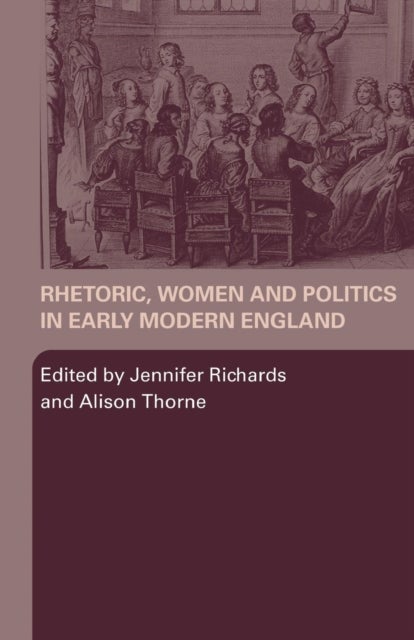
Rhetoric, Women and Politics in Early Modern England
499,-
<P>Rhetoric has long been a powerful and pervasive force in political and cultural life, yet in the early modern period, rhetorical training was generally reserved as a masculine privilege. This volume argues, however, that women found a variety of ways to represent their interests persuasively, and that by looking more closely at the importance of rhetoric for early modern women, and their representation within rhetorical culture, we also gain a better understanding of their capacity for political action. </P><P></P><P>Offering a fascinating overview of women and rhetoric in early modern culture, the contributors to this book:</P><UL><LI>examine constructions of female speech in a range of male-authored texts, from Shakespeare to Milton and Marvell</LI><LI>trace how women interceded on behalf of clients or family members, proclaimed their spiritual beliefs and sought to influence public opinion</LI><LI>explore the most significant forms of female rhetorical self-representation in the








